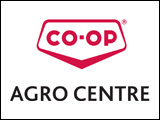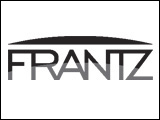Showing its continuing commitment to implementing recommendations made in the Virgo report on mental health and addictions, the Manitoba government has made it easier to access two drugs used to fight alcohol addiction.
“Alcohol is a leading cause of injury and death in Canada, including those resulting from impaired driving and from illnesses with known links to alcohol, such as certain types of cancer,” said Health, Seniors and Active Living Minister Cameron Friesen. “Changes we have made to the drug formulary will enhance access to anti-craving medications by allowing Manitobans to have prescriptions filled at any pharmacy without waiting for authorization or approvals.”
Effective immediately, Naltrexone and Acamprosate will be moved from a Part 3 exception drug status (EDS) benefit to a Part 1 ‘open benefit’ listing on the Manitoba drug formulary. This means that a physician prescribing the drug for a patient no longer has to receive prior approval from the Manitoba Pharmacare Program before doing so. Patients eligible for Manitoba pharmacare or drug plans offered by Manitoba Families can then immediately take the prescription to a pharmacy and have the costs covered.
The move was recommended in the Virgo report as a means to making it easier for people misusing alcohol to access treatment.
“Improving access to medications such as Naltrexone and Acamprosate is an important step in improving health outcomes for Manitobans through expanded and more readily accessible treatment. Importantly, steps such as this not only helps to decrease stigma associated with alcohol use disorder, but also helps to support patients in their recovery,” said Dr. Ginette Poulin, medical director, Addictions Foundation of Manitoba (AFM). “We also expect to see a reduction in time needed to treat patients within our Rapid Access to Addictions Medicine (RAAM) clinics, where these two medications are used on a daily basis.”
Poulin added the formulary change is also a step toward expanding use of these medications to treat patients in different areas of the health-care system including primary, hospital and acute care settings.
Released last year, the Virgo report detailed a strategy to modernize mental health and addictions services that had become antiquated in Manitoba. A number of recommendations have already been implemented including the opening of RAAM clinics, the addition of mental health services via a partnership with Strongest Families Institute, and the issuing of a request for proposals (RFP) for flexible-length treatment beds that are suitable for patients who are withdrawing from methamphetamine use. The implementation of other recommendations detailed in the report will be announced on an ongoing basis, the minister noted.
In addition to making it easier for people to access Naltrexone and Acamprosate, lower costs were negotiated for 68 generic drugs already on the formulary as part of the pan-Canadian Pharmaceutical Alliance (pCPA), which conducts joint governmental negotiations for brand name and generic drugs in Canada. The minister noted the pCPA allows governments to achieve greater value for publicly funded drug programs and patients by using their combined negotiating power.
“By reducing costs for drugs, we are increasing access to treatment options for patients, as well as consistent and lower costs for our program,” said Friesen.
The Manitoba Drug Benefits and Interchangeability Formulary lists therapeutically effective drugs of proven high quality that have been approved as eligible benefits under the pharmacare drug benefit program.
The Manitoba Pharmacare Program is based on family income and covers 100 per cent of eligible drug costs once the income-based deductible is reached, regardless of medical condition or age.



